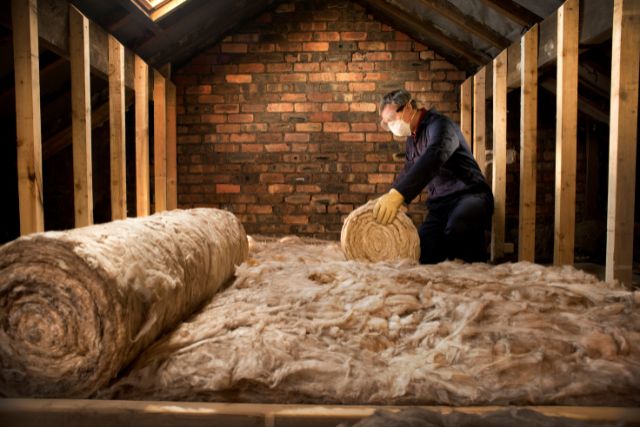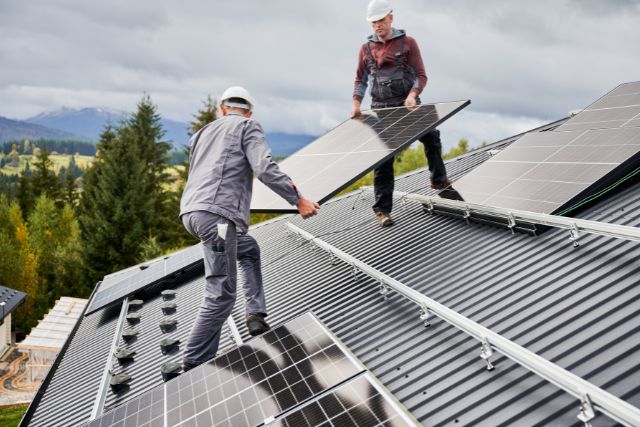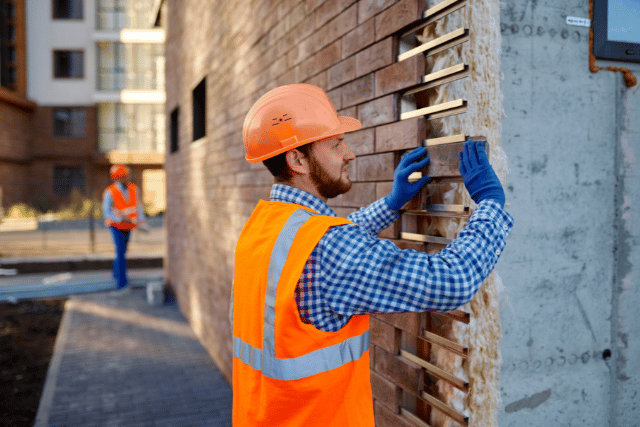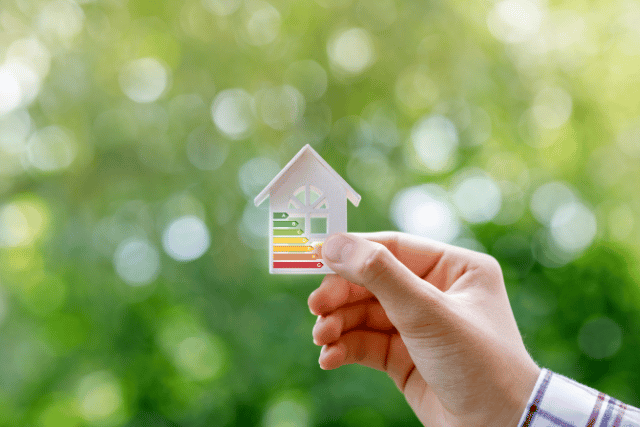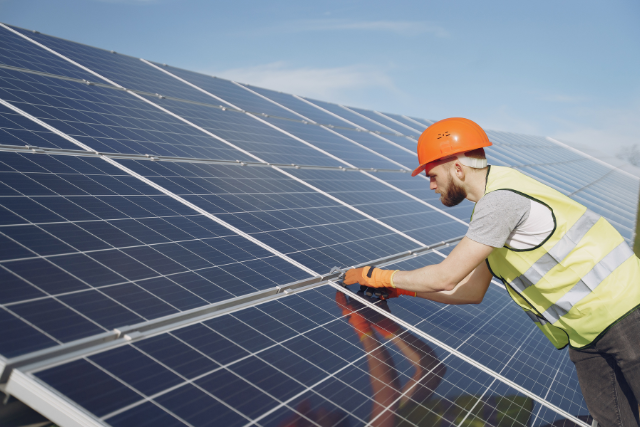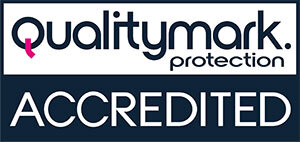How To Improve Your
EPC Rating
Written by: Energy Efficient You
Published: 22nd March 2024
What is an EPC Rating?
An Energy Performance Certificate (EPC) rating is a standardised measure of a building’s energy efficiency. It is measured on a scale of A to G, with A being the most efficient, and G being the least efficient. The EPC rating assessment examines factors such as insulation, heating systems, and lighting to determine the property’s energy consumption and carbon emissions.
EPC ratings can help homeowners, landlords and private tenants understand the energy efficiency of their homes, and identify areas for improvement to reduce energy costs and environmental impact.
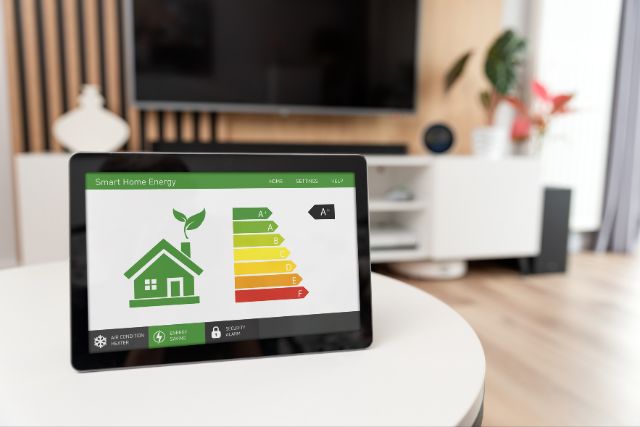
Why Improve Your EPC Rating?
Improving your Energy Performance Certificate Rating, or EPC rating is important for homeowners, landlords and private tenants alike, and holds many benefits.
Firstly, improving your EPC rating can offer long-term cost savings. A property with a higher EPC rating means it is more energy efficient, and will therefore have lower energy consumption and lower utility bills. In addition to this, a more energy-efficient household can contribute to sustainability and mitigate their environmental impact by reducing carbon emissions. For homeowners or landlords, it is also important to improve the EPC rating of a property as it can increase the marketing value of a property and make it more attractive to potential buyers or tenants.
Crucially, aligning with government regulations and initiatives by improving EPC ratings demonstrates a proactive stance towards addressing pressing environmental concerns such as climate change. It reflects a commitment to fulfilling sustainability goals and participating in collective efforts to reduce carbon emissions, enhance energy security, and build resilient communities for a greener and more sustainable future.
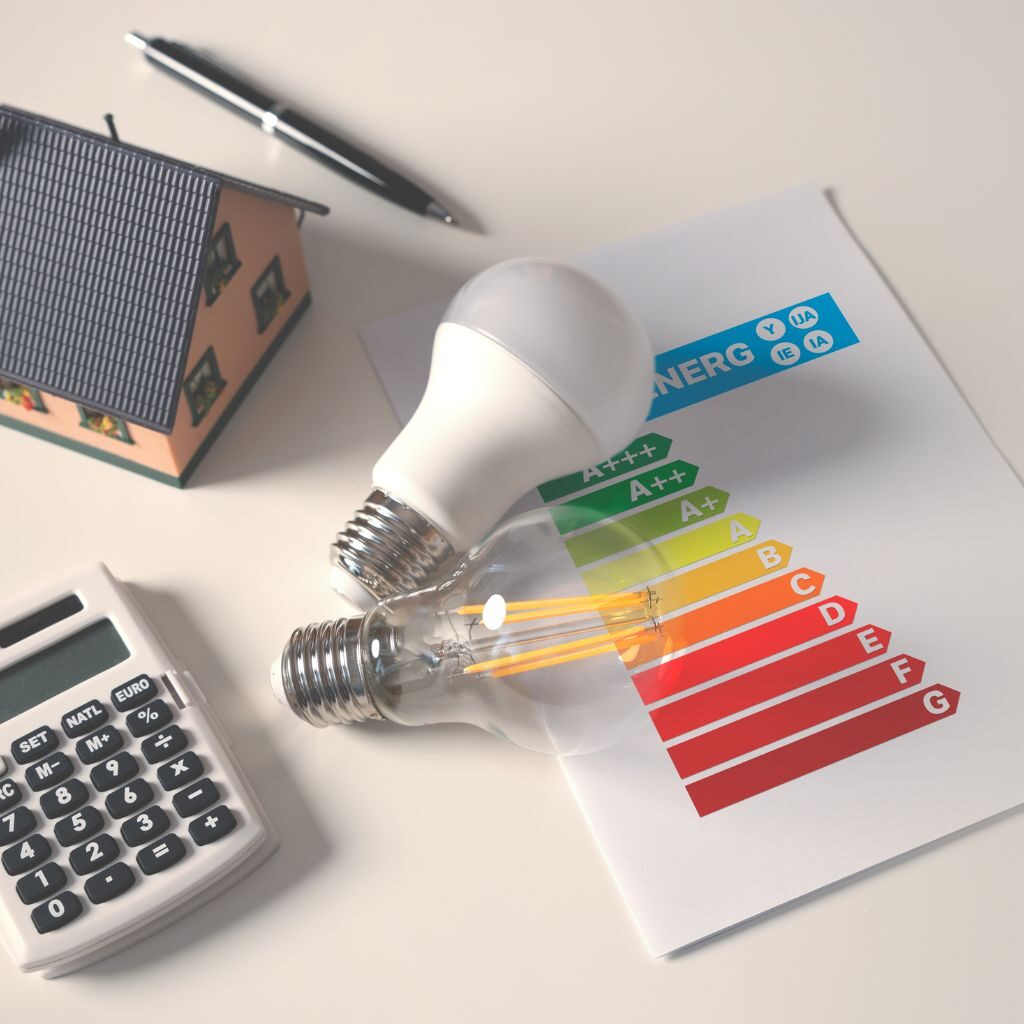
How to Check your EPC Rating
In the UK, you can check your property’s Energy Performance Certificate (EPC) rating through the official government website called the EPC Register.
Here’s how to do it:
Visit the EPC Register website (https://find-energy-certificate.digital.communities.gov.uk/).
On the homepage, you’ll see a search bar where you can enter your property’s postcode.
Enter your property’s postcode and click on the “Find” or “Search” button.
The website will generate a list of properties matching the postcode you entered. Find your property in the list and click on it to view its details.
Within the property details, you’ll find information about its EPC rating, typically displayed on a scale from A (most efficient) to G (least efficient).
You can also download the full EPC certificate to view more detailed information about your property’s energy efficiency and any recommendations for improvement.
How to Improve your EPC Rating
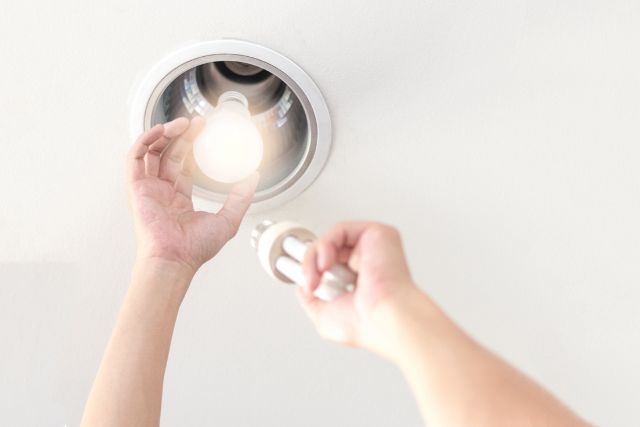
1. Upgrade Your Lighting
Upgrading lighting fixtures is a quick and easy first step in enhancing your property’s energy efficiency and subsequently improving its EPC rating. Transitioning from traditional incandescent bulbs to energy-efficient alternatives like LED (Light Emitting Diode) or CFL (Compact Fluorescent Lamp) bulbs not only reduces energy consumption but also extends the lifespan of your lighting system.
LEDs, in particular, consume significantly less electricity while emitting the same amount of light, resulting in substantial energy savings over time. Moreover, integrating motion sensors or timers into your lighting setup adds an extra layer of efficiency by automatically controlling lighting usage based on occupancy or time schedules. This proactive approach minimises energy wastage by ensuring that lights are only activated when needed, which contributes to a higher EPC rating.
2. Insulate Your Internal and External Walls and Roof
Upgrading insulation is another fundamental strategy for boosting the energy efficiency of your property and its heat retention. Insulation comes in many different forms, such as internal and external, and it can be put in your walls, floors and roofs to help prevent heat loss and reduce energy consumption through the building structure.
These insulation upgrades not only contribute to significant energy savings but also enhance thermal comfort, creating a more sustainable and comfortable living environment while potentially improving your property’s EPC rating.
These insulations can be costly to install, but some people are eligible for a free government-funded scheme that aims to help eradicate energy poverty. You could be eligible for a grant for free cavity wall, room in roof, and internal wall insulation if you fit the specific requirements.
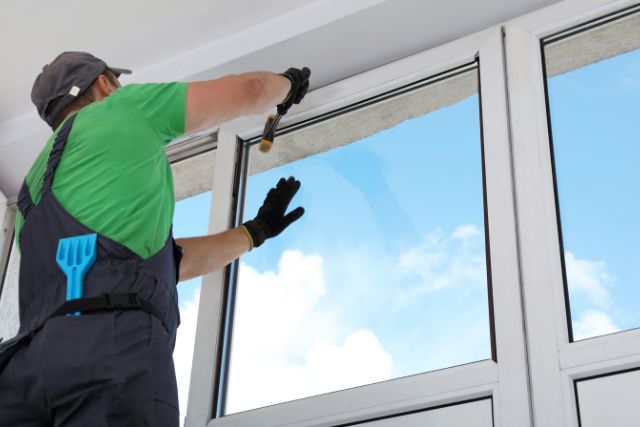
3. Install Double or Triple Glazing Windows
Upgrading your window glazing to double or triple glazed units offers many benefits beyond improving EPC ratings. These advanced windows help keep your home warmer in winter and cooler in summer, saving energy and reducing your bills. They also make your home quieter by blocking out more outside noise. Plus, they’re stronger and more secure, which can give you peace of mind. And if you ever decide to sell your home, upgraded glazing can increase its value.
As a result, buildings equipped with double or triple glazing windows exhibit improved energy efficiency, contributing positively towards achieving higher EPC ratings, indicating a greener, more sustainable living or working environment.
4. Upgrade Your Heating
Upgrading your heating system is instrumental in boosting your Energy Performance Certificate (EPC) rating. Modern heating technologies, such as high-efficiency boilers or heat pumps, significantly enhance energy efficiency by maximising heat output while minimising fuel consumption. These systems are designed to operate more efficiently, ensuring that less energy is wasted during heating processes.
Upgrading your heating system is not only beneficial for improving your EPC rating as modern heating systems offer more precise temperature control, require less maintenance, and have longer lifespans. By reducing energy consumption and associated emissions, upgraded heating systems play a crucial role in creating a more environmentally sustainable living space.
You may be eligible for a free heating upgrade grant under the ECO4 government funded scheme if you meet the requirements. Check out your eligibility now, or learn more about the schemes available to you!
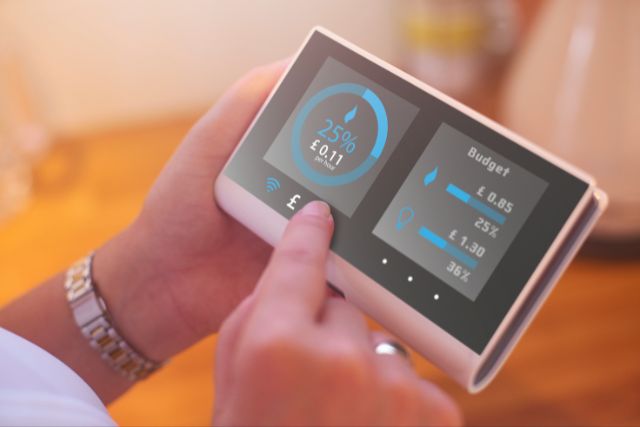
5. Install a Smart Meter
Installing a smart meter can significantly boost energy efficiency and positively impact your Energy Performance Certificate (EPC) rating. These innovative devices provide real-time data on energy consumption, allowing homeowners to make informed decisions about their usage habits.
By monitoring energy usage patterns, individuals can identify areas where they can reduce waste and optimise efficiency, ultimately lowering energy bills. Smart meters also enable remote monitoring and control, allowing for better management of energy-consuming appliances. Consequently, by embracing smart meter technology, households can not only enhance their energy efficiency but also demonstrate a commitment to sustainability, thereby improving their EPC rating.
6. Invest in Renewable Energy Solutions
Investing in renewable energy solutions is a game-changer for improving energy efficiency and boosting your Energy Performance Certificate (EPC) rating. Renewable energy sources like solar panels, wind turbines, and geothermal systems harness natural resources to generate clean, sustainable power. By integrating these technologies into your home or building, you reduce reliance on fossil fuels, minimise carbon emissions, and lower energy costs in the long run. By embracing renewable energy, you not only enhance energy efficiency but also contribute to a greener, more sustainable future while improving your EPC rating.
Additionally, renewable energy solutions often qualify for government grants and subsidies, making them not only environmentally friendly but also financially viable investments.
Check your eligibility for renewable energy here!
Conclusion
Understanding what an Energy Performance Certificate (EPC) rating is and how to improve it is crucial for both homeowners and property managers alike. The EPC rating serves as a valuable indicator of a building’s energy efficiency and environmental impact.
By implementing the six strategies outlined in this blog post—such as upgrading heating systems, installing double glazing, and investing in renewable energy solutions—individuals can not only enhance their property’s value but also contribute to a more sustainable future. Whether it’s reducing energy bills, increasing comfort levels, or minimising carbon footprints, improving your EPC rating benefits both occupants and the planet. Embracing these initiatives is a proactive step towards creating greener, more energy-efficient homes and buildings for generations to come.
See Our Other Blogs
How Much Does External Wall Insulation Cost?
External Wall Insulation has become a popular choice for homeowners to improve energy efficiency and reduce heating costs. Also referred to as solid wall insulation, it involves adding a layer of insulation material to the exterior walls of the building. This then acts like a thermal barrier, reducing heat loss through the walls. External wall insulation is key to lowering your energy bills.
How To Calculate Energy Efficiency
Energy efficiency is a measure of how effectively energy is utilised in a system or process to accomplish a specific task. It’s about getting the most out of the energy we use and optimising performance. Whether it’s in homes or businesses, understanding and improving energy efficiency are steps toward sustainability and resource conservation.
Solar PV has gained immense popularity as a clean and reliable energy source that holds the promise of reducing greenhouse gas emissions and minimising our dependence on fossil fuels. Photovoltaics (PV) has transformed the way we produce and consume electricity. Learn more about how solar pv can help save you money on your electricty bills.
